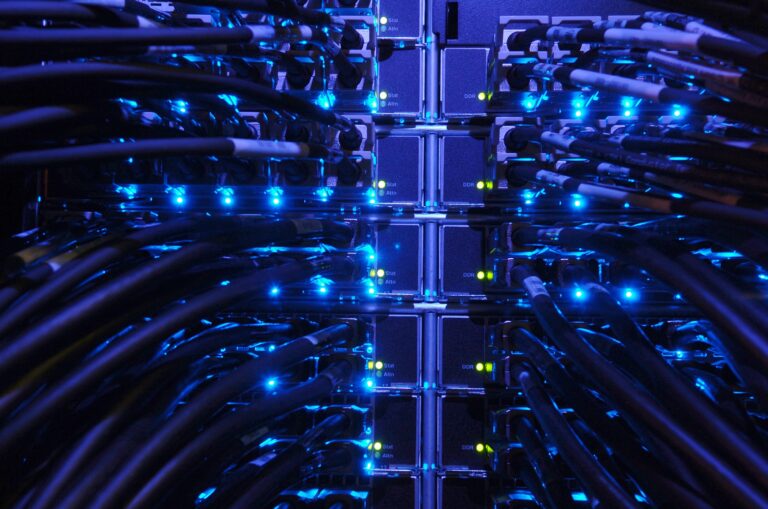
We are currently living in the Fourth Industrial Revolution.
Driven by advances in artificial intelligence (AI), quantum computing, blockchain, and other technologies, the Fourth Industrial Revolution has transformed how we live, work, and do business. And at the heart of the Fourth Industrial Revolution is high-performance computing (HPC).
HPC is a type of computing that uses specialized hardware and software to solve complex problems, ones that would be too difficult or time-consuming to solve using traditional computing methods. HPC systems are typically made up of thousands or even millions of interconnected processors, which allows them to perform calculations that are orders of magnitude faster than traditional computers or data centres.
Traditional data centres are designed to offer general-purpose computing services, but HPC systems are designed to handle the demands of power-intensive emerging technologies like AI and quantum computing.
HPC offers several advantages over traditional data centres, including:
Increased speed: HPC systems can process data much faster than traditional computers. This allows for faster training of AI models and quicker execution of quantum computing algorithms.
Increased accuracy: HPC systems can perform more exact computations than traditional computers. This is important for applications such as drug discovery and financial modeling.
Increased scalability: HPC systems can be scaled up to handle more extensive and complex problems. This makes them ideal for applications such as climate modeling and weather forecasting.
As a result, HPC systems are typically used by businesses, research institutions, and government agencies to simulate weather patterns, design new products and develop new drugs. And HPC is the throughline underlying AI and quantum computing advances – and with it, the incredible possibilities of the Fourth Industrial Revolution.
HPC is what makes it possible to train AI models on large datasets, and because HPC can be used to process this data more quickly and efficiently, the AI models have better accuracy. In turn, this makes real-world and real-time applications possible. Similarly, HPC is what is powering the evolution and impact of quantum computing; it is being used to build quantum computers and to support the training of quantum machine learning models that show a new level of sophistication and real-world impact.
The rapid evolution and adoption of quantum computing and AI presents a groundbreaking opportunity to revolutionize industries across the board, including finance, healthcare, logistics, cybersecurity, and gaming.
For instance, quantum computing can run models that optimize the most complex global supply chains or analyze vast agricultural data about water use, fertilizers, and other inputs. This enables farmers to make more efficient and sustainable decisions. In life sciences, quantum computers can simulate how molecules interact with one another with unprecedented accuracy, offering the prospect of dramatically accelerating the time it takes to bring new drugs to market.
In finance, complex AI models can revolutionize risk assessment, fraud detection, and portfolio optimization. And AI is already being used in gaming to create more realistic and immersive experiences, generating 3D graphics, creating more intelligent AI opponents (for solo human players to compete against), and to overall personalize the gaming experience for each player – creating unprecedented levels of realism, complexity, and interactivity.
As a result, AI and quantum computing are rapidly growing, and the demand for HPC infrastructure is growing with it. Recent data by Precedence Research estimated the global AI market size at US$ 119.78 billion in 2022. It is expected to grow at an annual rate of nearly 40% rate to hit US$1.5 trillion by 2030. Similarly, McKinsey found that Global AI adoption is 2.5X higher today than in 2017.
However, the development and deployment of HPC systems is challenging. They require powerful hardware, specialized software, and a skilled workforce to operate and sustain it. The cost of developing and deploying HPC systems is also quite high, but nonetheless demand will continue to grow because it is the critical technology driving the Fourth Industrial Revolution and the infrastructure for future innovation.
HPC is essential for AI, quantum computing, and a wide range of other industries. By learning more about HPC, businesses and leaders can stay ahead of the curve and futureproof their organizations by putting in place the computing and technical infrastructure necessary to support the next innovation wave.
Josh Rayner is the Vice President of High-Performance Computing at Hut 8.




Leave a Reply